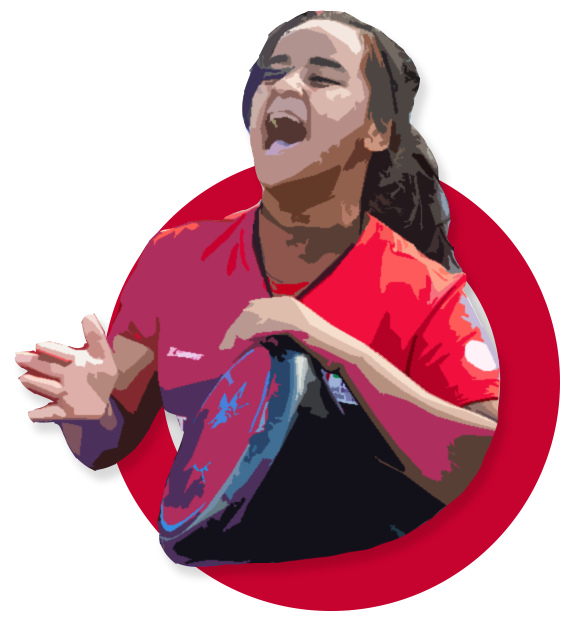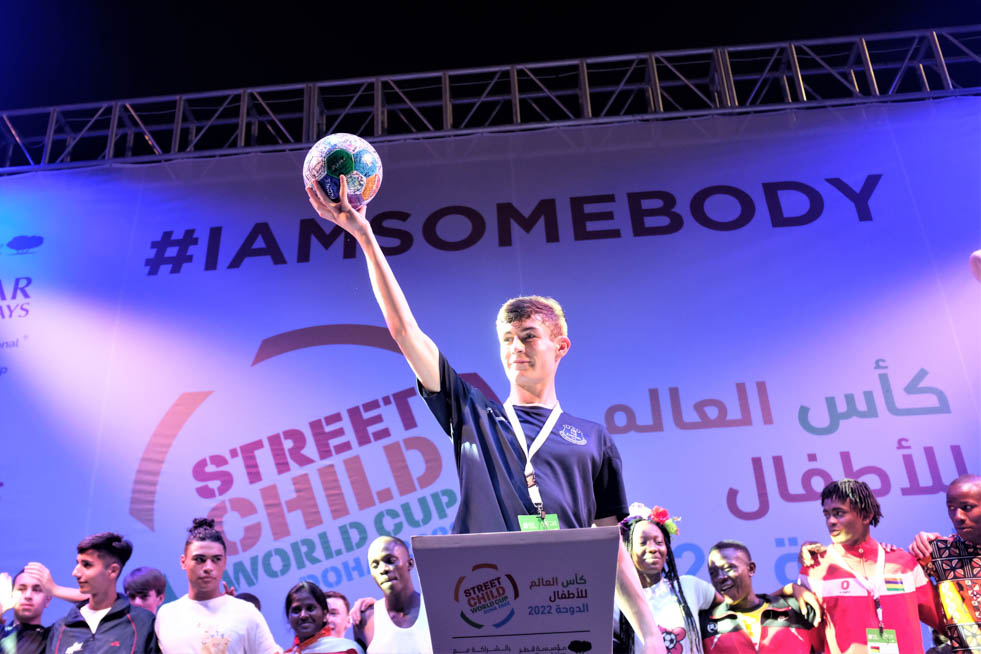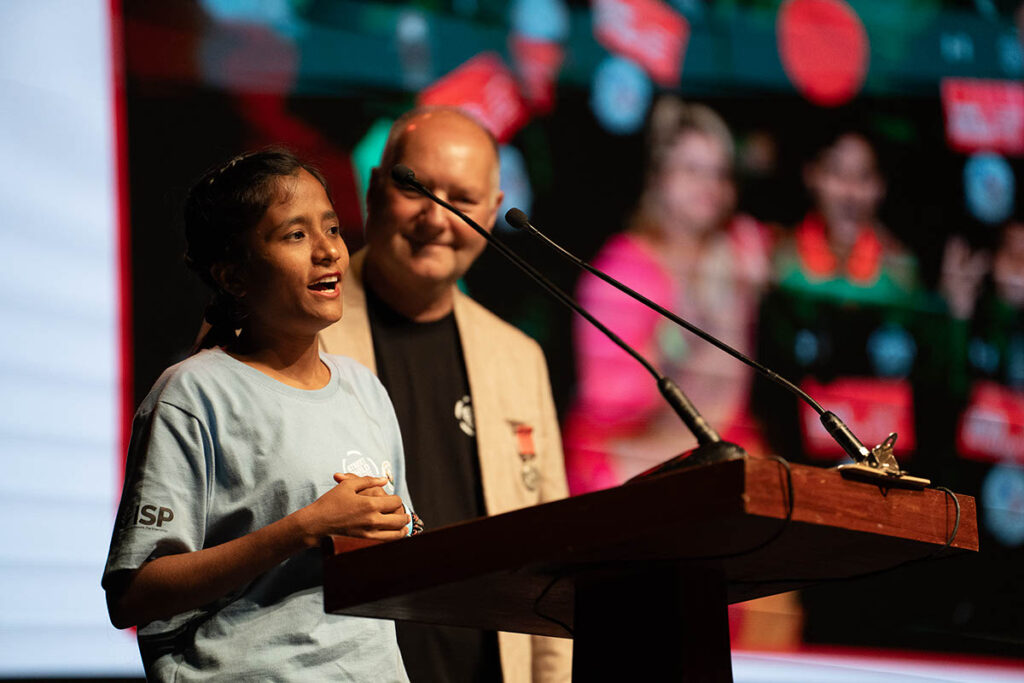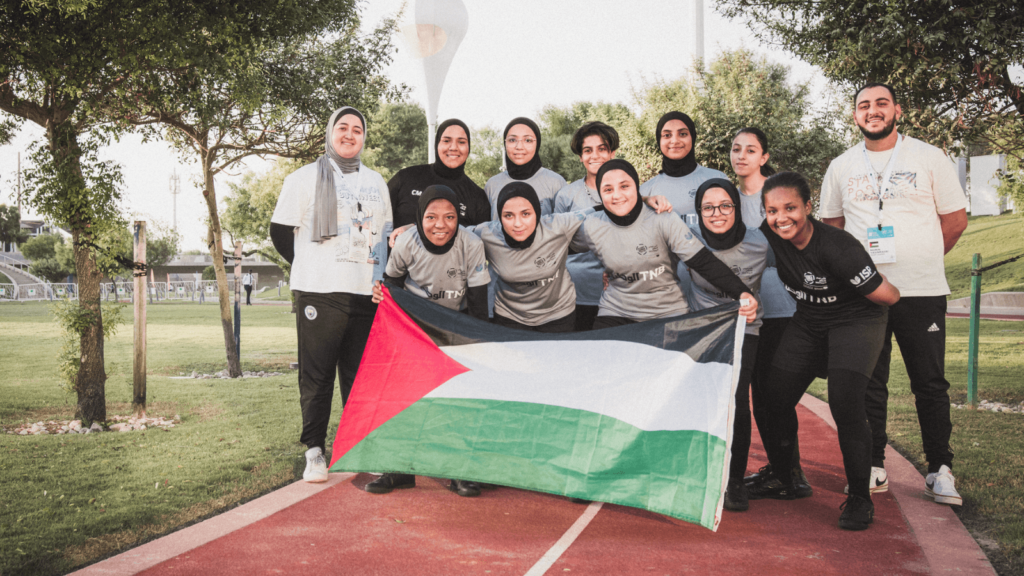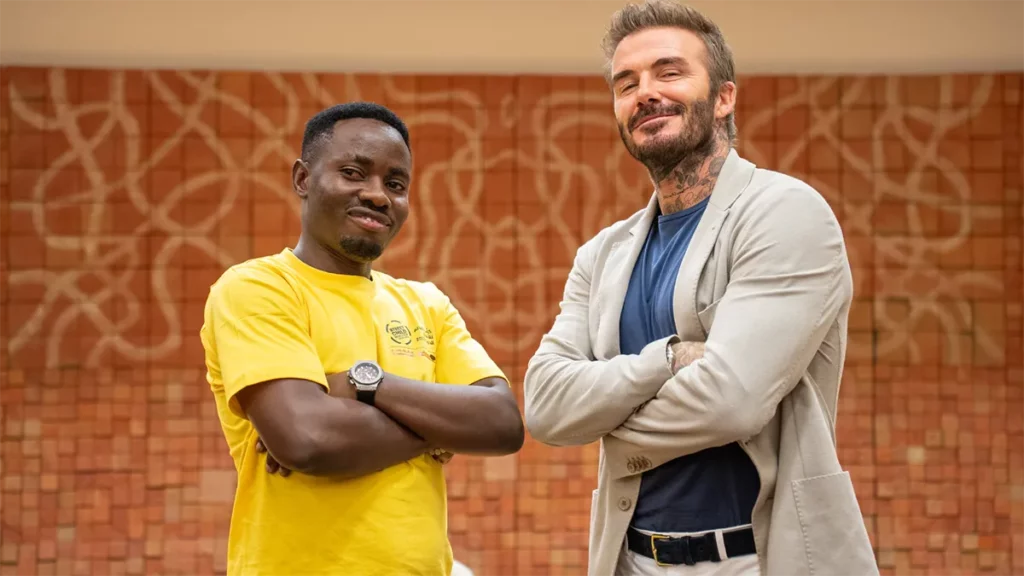Breaking barriers: how Street Child United’s programmes empower girls in street-connected communities.
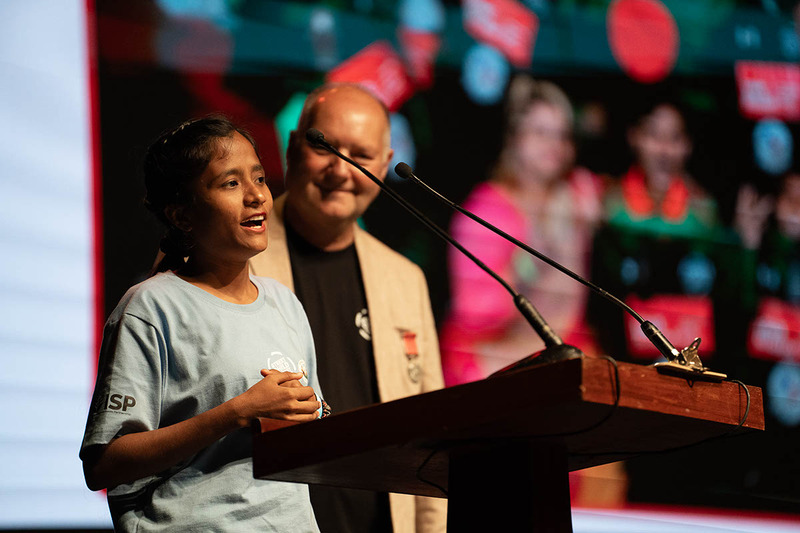
This International Women’s Day, we’re shining a light on an incredibly important group: our street-connected young women and girls.
Less visible than their male counterparts and often at increased risk of exploitation, abuse and trafficking, street-connected girls are battling their own unique set of obstacles to a happy, safe and secure future.
That’s why promoting gender equality is a fundamental part of our mission at Street Child United: every child deserves protection, support and opportunities, regardless of their background or gender.
But don’t take our word for it – hear from two of SCU’s incredible Young Leaders, Sopna and Deyna, on how Street Child United have supported and empowered them as young women.
Supporting birth registration
One of the greatest challenges street-connected girls face is a lack of identification. Many don’t have a birth certificate or any other form of official identification, which can restrict access to fundamental human rights like healthcare and education.
In our efforts to remove this major obstacle, Street Children United has successfully secured 867 passports so far, a number only set to grow with our ‘One Million and One’ campaign that aims to secure one million and one identifications for street-connected children by 2026.
Raised in northern Bangladesh and facing a difficult home situation that left her on the street, securing birth registration was vital in helping Sopna secure her citizenship and pursue education:
“I successfully obtained my passport, ensuring my citizenship rights in Bangladesh. Then, I obtained a visa to enter the UK.”
Providing protection and safeguarding from difficult situations
Sadly, street-connected children of all genders are at high risk of experiencing abuse, exploitation, trafficking and violence, whose status means they may have little, if any, access to justice or social services.
Street-connected girls may be less visible on the street – it is more likely they are out of sight in temporary accommodation, squats or with friends and family – but gender-based violence and institutional sexism can make them particularly vulnerable.
Our programmes help remove vulnerable girls from these situations through empowerment, enabling them to experience the security to grow and succeed.
Bolivian university student Deyna highlights how engaging in sport, and subsequently, Street Child United, paved the way for a brighter future:
“I honestly don’t know what could have happened in my life if I wasn’t an athlete, maybe I would have fallen into bad friendships or alcohol and drug addiction, or maybe I would have been a young mother because that is what happens with the majority of teenagers in my country. But I feel that football has avoided those possible situations because I only had time to train. Football has saved me.”
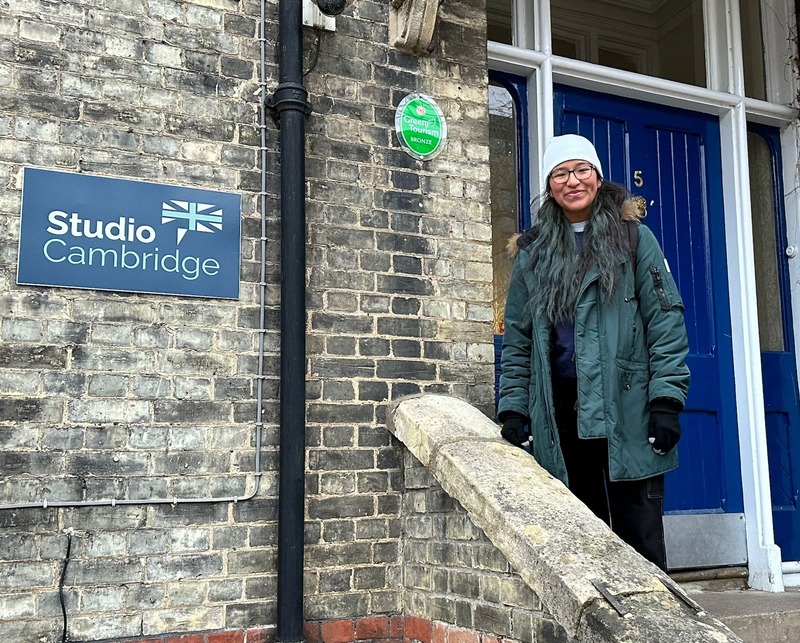
Creating paths into education
Their economic and legal status often means that street-connected children are rarely able or allowed to go to school or access education that supports the specific challenges they face.
In some countries, systems of gender inequality mean that street-connected girls already face additional obstacles to accessing education, which only amplifies the gender divide.
More than removing children from their current, challenging situations, our programmes enable street-connected girls to access the educational opportunities, vocational training, and mentorship programs vital for upward social mobility and escaping poverty, helping them build a better and brighter future.
Sopna: “I care for my younger brothers and sisters when they fall ill; I accompanied them to the hospital and looked after them. My interest in nursing began to develop during these experiences as I realised my passion for caring for others in a healthcare setting.
“Since [participating in the Street Child United Cricket World Cup in 2019 as a player, I have been] focusing on my studies, completing SSC, HSC, and currently pursuing a BSc in nursing at Prince Nursing College, now in my 3rd year.”
Supporting grassroots activism to create lasting change
Lasting change ultimately takes place at an institutional level. So, our programmes aim to get pressing issues affecting street-connected children and girls in front of governments across the globe to demand change – an effort that has allowed us to reach 12 governments so far.
And there is no better to share our Young Leaders’ messages than enabling them to get involved themselves and become the change they want to see in the world.
That’s why we regularly support our street-connected children with getting in front of government leaders to engage with them directly and share their stories firsthand.
Sopna: “During the Street Child United Cricket World Cup in 2019 in London, I had the opportunity to speak at the British Parliament and address the issue of legal identity for children living on the streets. At that time, obtaining birth certificates was particularly challenging, especially without the National ID (NID) of parents. Not only did I raise this concern internationally, but I also addressed it nationally in various dialogues and events in Bangladesh, where lawmakers were present.”
“Following these efforts, a significant milestone was achieved in the High Court, where it was granted that children could obtain birth certificates without requiring their parents’ NID. This accomplishment stands as an excellent achievement for the children, and I take pride in the fact that, with the support of Street Child United, I could contribute to making this positive change for the kids.”
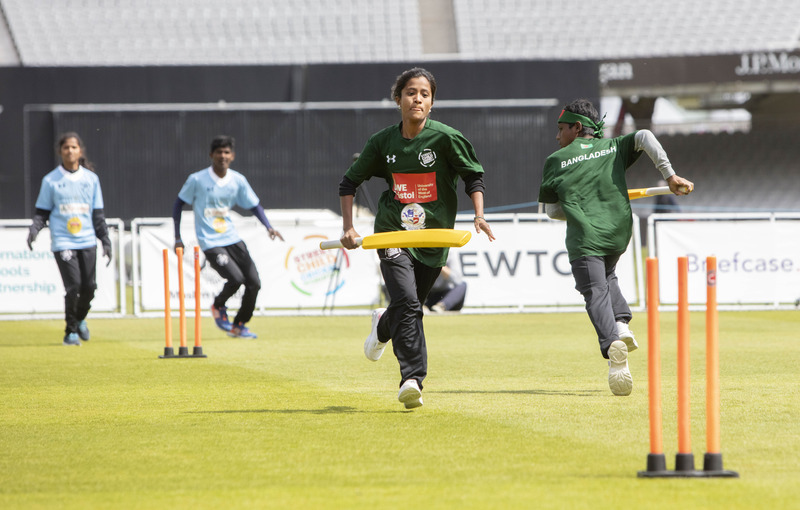
Fostering a lifelong passion for sport
Sport is an unrivalled tool for empowerment – boosting self-esteem, promoting wellbeing, and developing vital skills for success like leadership and teamwork.
That’s why we’re so proud that our programmes and events enable street-connected girls to grow a lifelong love of sport.
Deyna: “[Street Child United’s] Young Leader programme has helped me grow in different personal areas: developing a leader personality, a positive mentality and the ability to manage and solve group and/or personal conflicts. Thanks to [the programme], I have developed the ability to be a leader in my home, university, soccer teams, etc.
“Sport helps girls and women grow individually, with ambitions, with an empowered mentality, with the opportunity to be part of positive change in society and be an inspiration for future generations.”
Sopna: “Sport provides opportunities for women and girls to develop confidence, leadership skills, and teamwork abilities. It teaches them to push their limits, overcome challenges, and excel in various aspects of life. Participation in sports also fosters a sense of self-belief, encouraging women and girls to challenge themselves in other areas and break through societal limitations. This helps to raise awareness and create a more inclusive and equal society.
“By encouraging women and girls to participate in sports, we can contribute to healthier lifestyles and a better quality of life for individuals and communities.”
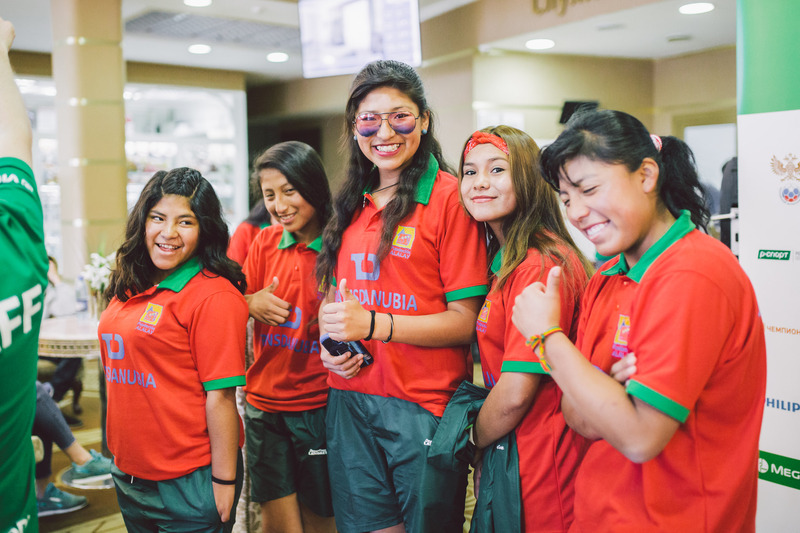
An ongoing mission
At Street Child United, championing street-connected girls is not something we strive to focus on just today, but rather every day in the ongoing fight toward ending gender inequality.
Our work to support street-connected girls is an ongoing effort, one that we will continue to pursue to promote lasting change.
We’ll leave you with a message from Sopna and Deyna…
Deyna: “To all the women, strong and with a fighting spirit, I send you all my support, be patient and do not give up despite the injustices despite everything bad that is happening because I know that you will be able to achieve everything you propose, the change that you want starts with you.”
Sopna adds: “Street-connected girls are […] a wealth of the nation too. Give them an opportunity, and they will prove it.”
